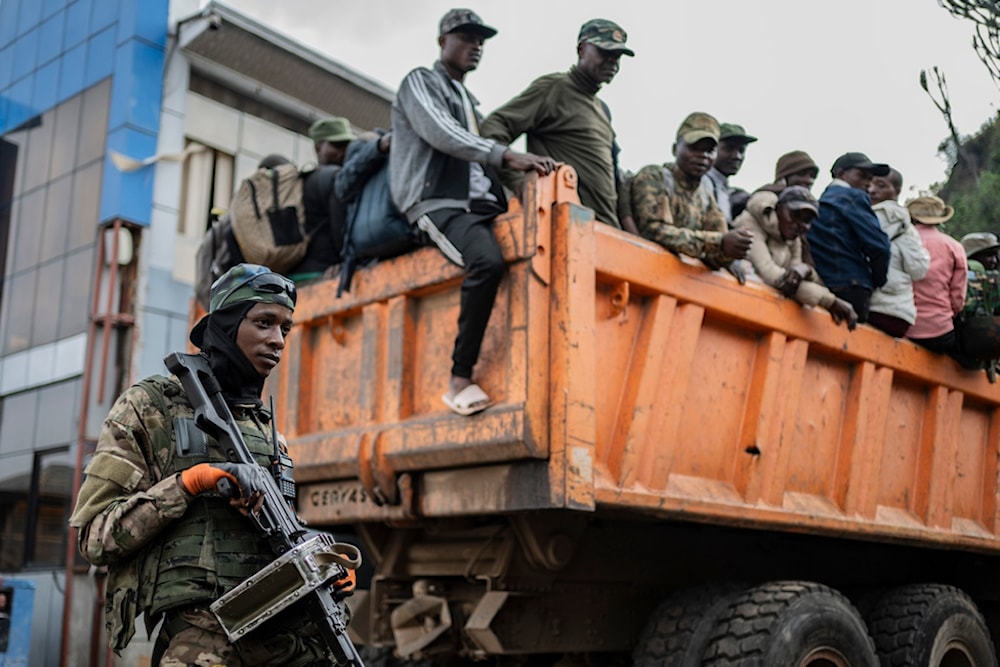M23 rebels to withdraw from Walikale in peace initiative
The Congo River Alliance, which includes M23, stated that the withdrawal from Walikale aligns with a ceasefire declared in February.
-

Former members of the Armed Forces of the Democratic Republic of Congo (FARDC) and police officers who allegedly surrendered to M23 rebels arrive in Goma, Congo, on Sunday, February 23, 2025. (AP)
Rwanda-backed M23 rebels announced on Saturday their decision to withdraw from Walikale, a recently seized town in eastern Congo, citing support for peace efforts after the group pulled out of planned talks with Congolese authorities earlier this week due to EU sanctions on its leaders and Rwandan officials.
The capture came just after Congolese President Felix Tshisekedi and Rwandan President Paul Kagame held surprise talks in Doha on Tuesday, where they voiced support for a ceasefire. However, the specifics of any potential truce remain unclear, with mediator Qatar stating that further negotiations are needed.
"Walikale-centre is occupied by the M23...We retreated to avoid human losses," an officer from the Congolese military (FARDC) told AFP, noting that government forces had withdrawn to Mubi, about 30 kilometers (20 miles) away. Another security source confirmed the capture and reported fighting in Mubi on Thursday.
The Congo River Alliance, which includes M23, stated that the withdrawal aligns with a ceasefire declared in February. However, Congolese army officials remain skeptical, with some suggesting the rebels are repositioning rather than fully retreating.
Demilitarization of Walikale
"We are asking for Walikale and its surroundings to remain demilitarized," a senior alliance member stated, warning that any return of the Congolese army could reignite hostilities.
Congolese Foreign Minister Therese Kayikwamba Wagner expressed cautious optimism, saying, "We hope this will be translated into concrete action." However, an army officer reported that M23 forces were advancing towards Mubi, further west, following recent bombings of Walikale’s airport and supply routes.
The conflict has thus far seen M23 rebels capture key cities in eastern Congo since January. The latest offensive has brought them within 400 km of Kisangani, a strategic port city on the Congo River, raising fears of further escalation.
Ceasefire bids in jeopardy
While multiple ceasefires and peace talks have been attempted, fighting persists. Congo, the UN, and Western nations accuse Rwanda of backing M23 with arms and troops, a claim Kigali denies, insisting its forces are acting in self-defense.
M23 leader Corneille Naanga dismissed a joint ceasefire call from Congo and Rwanda, emphasizing that only direct talks with Kinshasa could resolve the crisis.
The M23 has made rapid territorial gains in recent months, pushing Congolese forces out of much of North and South Kivu provinces and heightening fears of a broader regional conflict.
The DRC government has repeatedly accused Rwanda of supporting the M23 to gain control over valuable mineral resources. While Rwanda denies providing military assistance, a UN experts' report has stated that Rwanda maintains approximately 4,000 troops in eastern DRC to support the armed group.

 3 Min Read
3 Min Read








